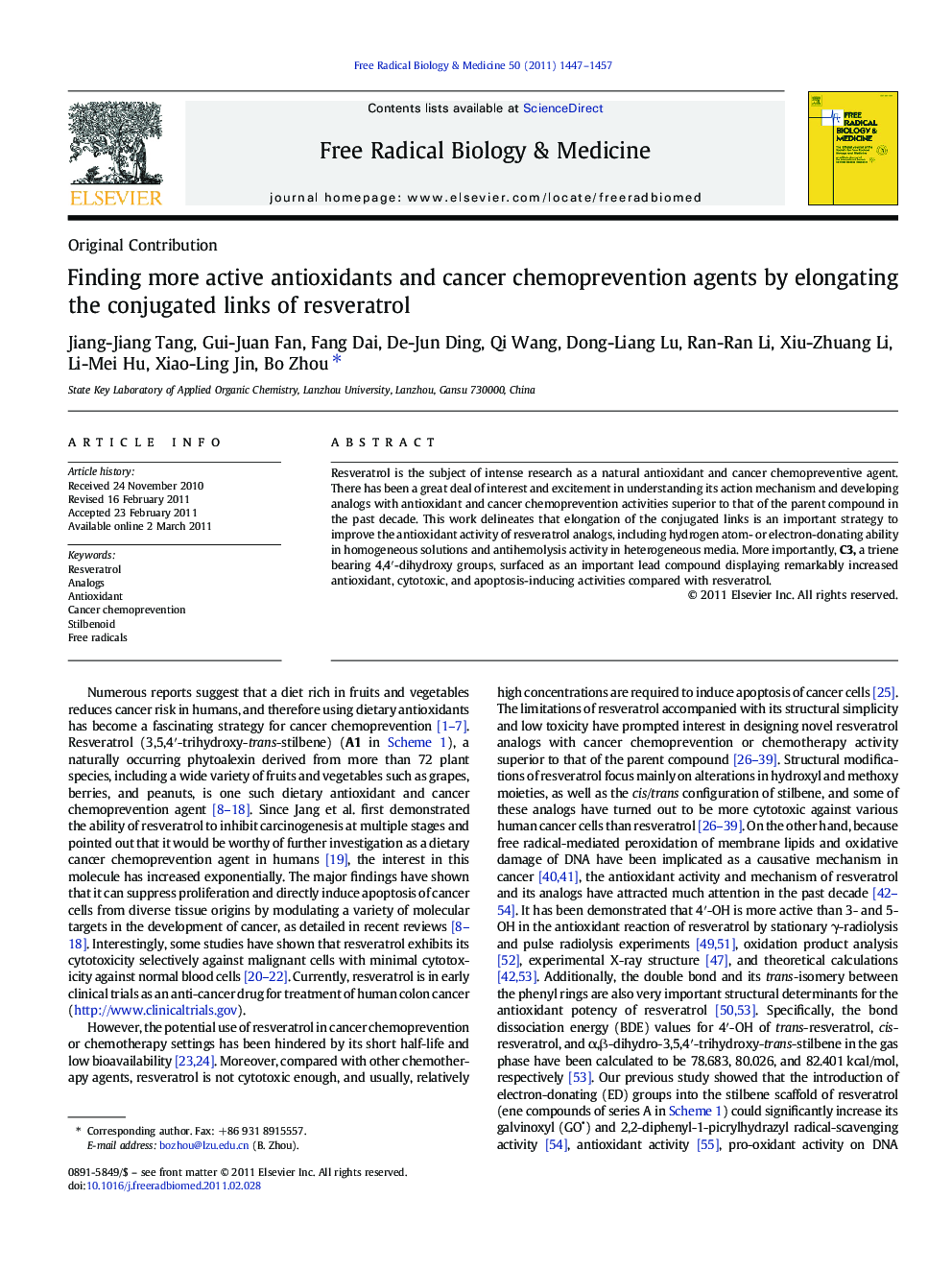| Article ID | Journal | Published Year | Pages | File Type |
|---|---|---|---|---|
| 10738411 | Free Radical Biology and Medicine | 2011 | 11 Pages |
Abstract
Resveratrol is the subject of intense research as a natural antioxidant and cancer chemopreventive agent. There has been a great deal of interest and excitement in understanding its action mechanism and developing analogs with antioxidant and cancer chemoprevention activities superior to that of the parent compound in the past decade. This work delineates that elongation of the conjugated links is an important strategy to improve the antioxidant activity of resveratrol analogs, including hydrogen atom- or electron-donating ability in homogeneous solutions and antihemolysis activity in heterogeneous media. More importantly, C3, a triene bearing 4,4â²-dihydroxy groups, surfaced as an important lead compound displaying remarkably increased antioxidant, cytotoxic, and apoptosis-inducing activities compared with resveratrol.
Related Topics
Life Sciences
Biochemistry, Genetics and Molecular Biology
Ageing
Authors
Jiang-Jiang Tang, Gui-Juan Fan, Fang Dai, De-Jun Ding, Qi Wang, Dong-Liang Lu, Ran-Ran Li, Xiu-Zhuang Li, Li-Mei Hu, Xiao-Ling Jin, Bo Zhou,
